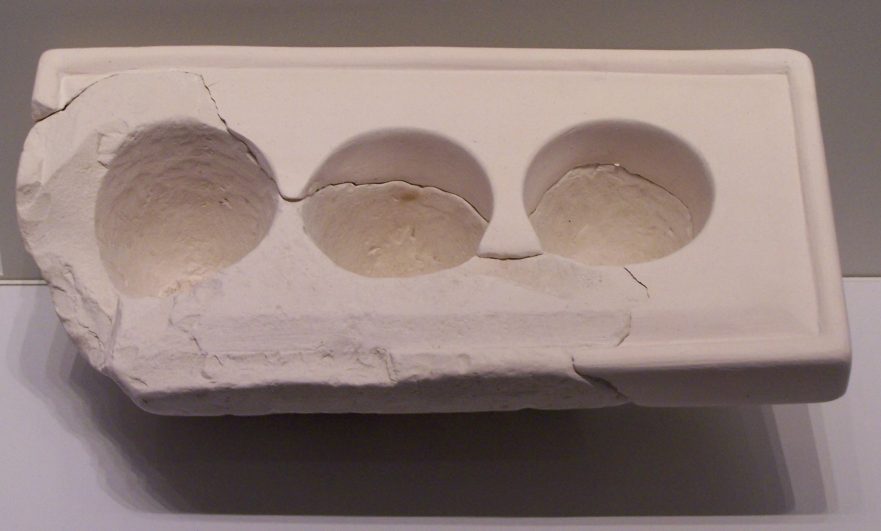Jesus may have been confined to Joseph of Arimathea’s tomb for a period of time no longer than about 26 hours.
Sunshine For Everybody

Song of Songs Zuta is a rabbinic commentary on the Song of Songs. It may be characterized as exegetical and haggadic. In contrast to the better known Song of Songs Rabbah, Song of Songs Zuta is shorter in length. The words rabbah (great) and zuta (small) imply this contrast.
Threading a Needle

Over the past few years, I have reflected much on the phrases “to enter the Kingdom of Heaven” and “to inherit eternal life.” One important conclusion that I have reached from reading early rabbinic literature and Matthew, Mark, and Luke is that these are two independent concepts sharing a fuzzy area of overlap.
Measure For Measure

Some of the things Jesus emphasized in his teachings stand as strong warnings to those who belong to the community of faith. Jesus made statements about not lapsing into prideful judgmentalism, and becoming centripetal in one’s thinking. Jesus taught that our attitude toward other people—outsiders, even sinners—must be like God’s.
Repentance: God Inhales

Blessing God as one who delights in repentance has rich theological implications. Nevertheless, this blessing runs the risk of inaccuracy by understating God’s reaction to repentance. He not only delights in it but displays peculiar patterns of behavior when under its influence.
Jesus’ Sabbath Dispute with Pharisees in a Cornfield

The debate between Jesus and the Pharisees about plucking and eating corn did not concern labour on the Sabbath but concerned eating food which was allowed only to priests.
What is the significance of the two Greek words for “love” in John 21:15-17?

Does Hebrew have two words that would differentiate between the love of Christ for Peter and Peter’s love for Christ?
Jesus’ Reference to Folklore and Historical Events

An inherent consequence of our distance from the world of Jesus is that we primarily understand Jesus’ words as they apply within our twenty-first century eschatological and theological framework. However, Jesus’ teachings reflect his cultural background as a Jewish rabbi in first-century Galilee.
A Time To Fast?

Once, when Jesus and his disciples were enjoying themselves at a dinner party, a simple observation was made: “Your disciples don’t fast!” The observation was innocent and simple enough; it was not an accusation, but an honest exclamation of perplexity. Jesus’ response, however, was far from simple.
Was New Orleans Punished for Its Sinfulness?

Let’s consider how Jesus would have responded to the damage and loss of life wrought by Katrina.
“They Didn’t Dare” (Matt 22:46; Mark 12:34; Luke 20:40): A Window on the Literary and Redactional Methods of the Synoptic Gospel Writers
Mark’s placement of Jesus’ “no longer dared” comment is very awkward: first, because the comment comes in the middle of a lovefest between Jesus and a scribe; and second, because the comment immediately follows Jesus’ appreciation of the scribe’s wisdom: “You are not far from the Kingdom of God.”
Jesus’ Yoke and Burden

It appears that the original context for Jesus’ “Comfort for the Heavy-Laden” saying has been lost; however, passages in the apocrypha indicate that Jesus was speaking of Torah study and the rigors of first-century discipleship.
Divorce and Remarriage in Historical Perspective

This study is dedicated to those who have suffered the agony of divorce. Tragically their pain has been compounded by well-meaning Christians who have distorted both the letter and the spirit of Jesus’ teaching concerning divorce and remarriage. For them, may this article bring a measure of healing.
Matthew 5:19: The Importance of “Light” Commandments
In the modern Hebrew translation that was published by the Israeli Bible Society in 1976, and revised in 1991 and 1995, Matthew 5:19 was rendered “…ha-mitsvot ha-ketanot…katon yikare’…gadol yikare’…” (the small commandments…small [smaller, smallest] he will be called…big [bigger, biggest] he will be called). It is highly probable, however, that in this context Jesus was speaking about mitsvot kalot (light commandments) and not about mitsvot ketanot (little or small commandments).
Call No Man “Father”

The word abba (אַבָּא), which literally means “the father” in Aramaic, but also can mean “our father” or “my father,” was brought into Hebrew and used in the endearing sense of “daddy.”
Another Look at the “Cleansing of the Temple” Story

Based on archaeological excavations near the southern wall of the temple, the research of Shmuel Safrai, and a nuance of the Hebrew verb that is one of the equivalents for Greek ekballein (drive out, banish; throw out; throw away, reject; cast out of a place, expel; remove, get rid of; put out), it may be necessary to reinterpret the gospel accounts of Jesus’ “cleansing” of the temple, even suggesting a different location for Jesus’ action.
Abraham’s Temptation, Forerunner of Jesus’ Temptation

When tempted, both Jesus and Abraham vanquished their tempter with words of Torah, just as Israel’s teachers exhorted their students to do.
Selected Examples of Rewriting in Mark’s Account of Jesus’ Last Week

It has been noted that in instances where Mark’s editorial hand restructured his story, Luke has preserved a more primitive form of the account, a form that is independent of Mark’s influence. Gospel scholars need to properly evaluate Mark’s editorial style and acknowledge that frequently a theological agenda influenced his rewriting.

